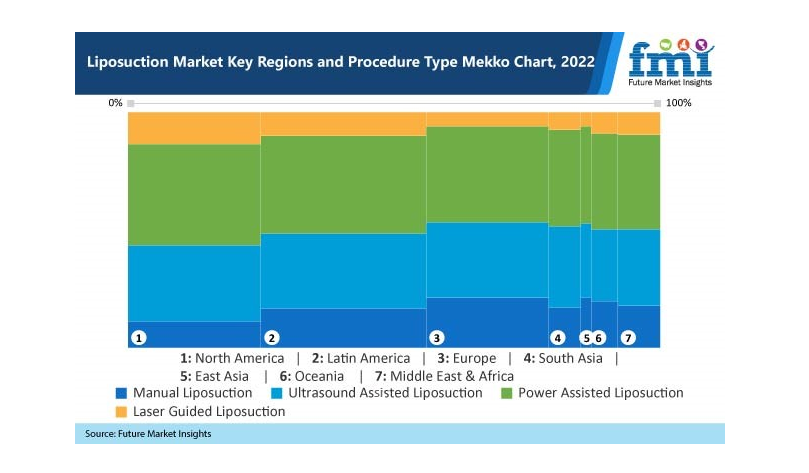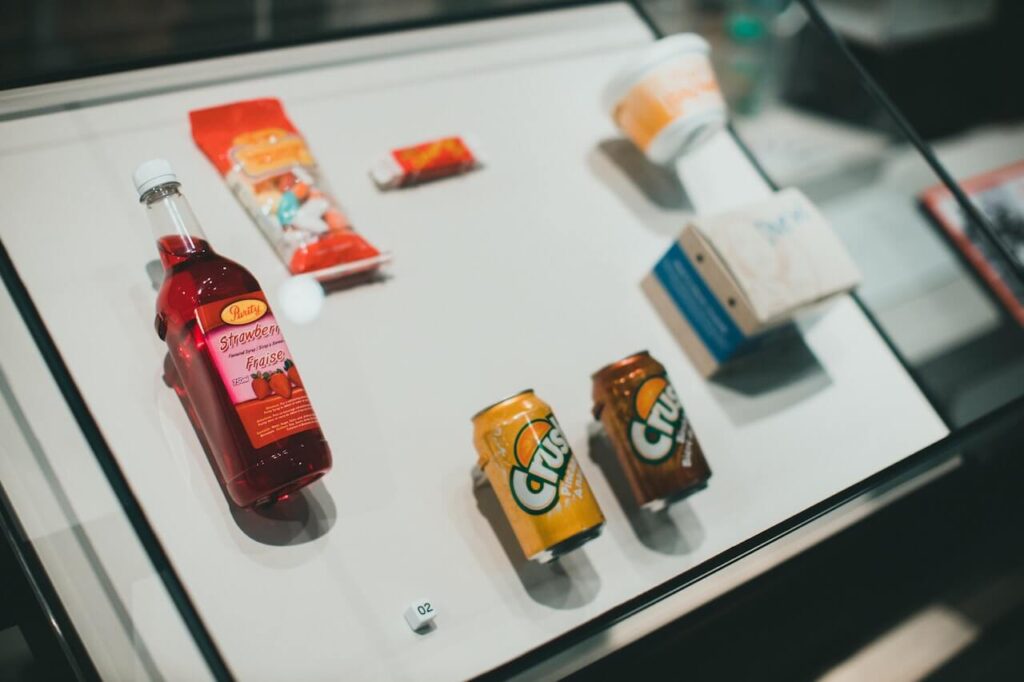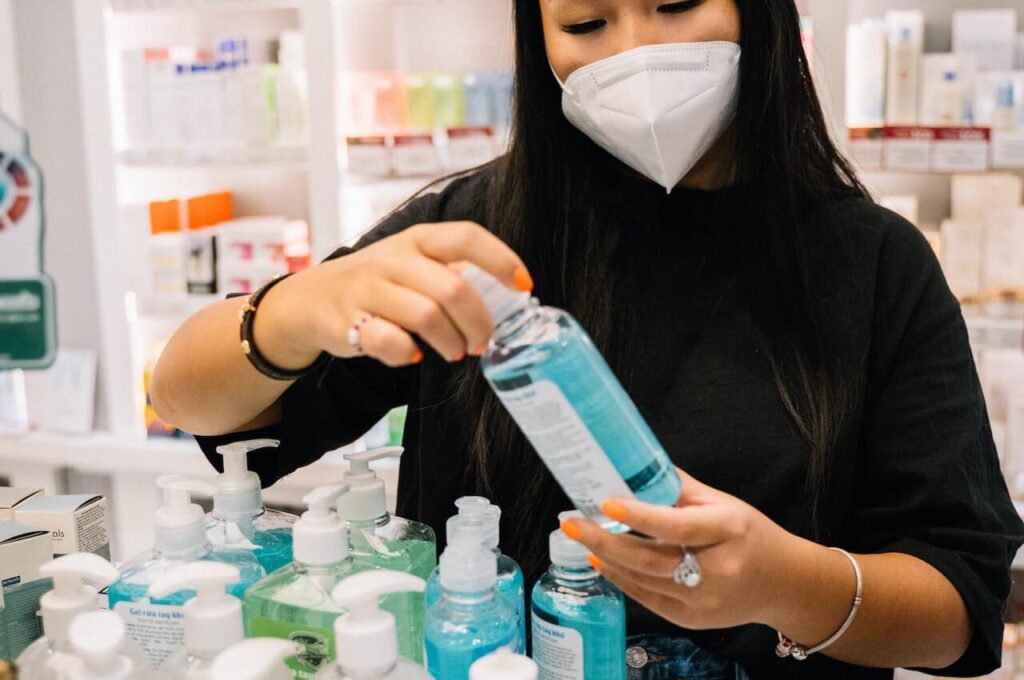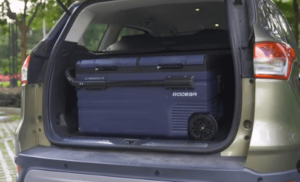The lipo market has been witnessing significant growth, promising a prosperous outlook for the industry. In 2021, the global market value of liposuction stood at an impressive US$ 4.5 billion. The following year, in 2022, it escalated to an estimated value of US$ 4.7 billion, reflecting a steady increase in demand for this medical procedure.

Image Courtesy: Future Market Insights
What’s more fascinating is the future projection of the market. By 2032, the liposuction market is predicted to double its worth, reaching a substantial value of US$ 9.1 billion. This upsurge represents a compound annual growth rate (CAGR) of 6.8% from 2022 to 2032, highlighting an undeniably robust growth trajectory for the industry.
As we delve into the fascinating world of Lipo Lab products, a recurring question arises: does Lipo Lab need to be refrigerated? This blog aims to explore this question, providing a detailed exploration of Lipo Lab products, the science behind product preservation, and the specifics of their optimal storage conditions.
Read More: Does Cheese Bread Need To Be Refrigerated?
Understanding Lipo Lab Products
Lipo Lab products are often associated with lipolysis or fat-dissolving procedures. As injectable solutions primarily composed of phosphatidylcholine, these products target fat deposits, aiming to break them down and flush them out of the body.
Just like any pharmaceutical product, maintaining the potency and longevity of Lipo Lab products requires an understanding of their storage needs. Given their composition, this often means taking temperature considerations into account.

The Science of Product Preservation
Pharmaceutical storage is a science in its own right. Temperature can significantly impact a product’s effectiveness, stability, and safety. Some medications, for instance, need to be refrigerated to maintain their efficacy, while others might require room temperature.
When it comes to Lipo Lab products, understanding how temperature variations affect them is crucial. They must maintain sterility as injectable solutions and temperature extremes could compromise their integrity or encourage bacterial growth.
Does Lipo Lab Need Refrigeration?
According to the manufacturer’s instructions, Lipo Lab products should be stored in a cool and dry place, away from direct sunlight. However, they do not explicitly require refrigeration. The active ingredients in Lipo Lab, such as phosphatidylcholine, are generally stable at room temperature.
But what if they’re not stored properly? Failing to meet the storage requirements could lead to decreased efficacy and, in rare cases, might pose health risks due to contamination. Although not the norm, there might be exceptional scenarios, such as extreme heat, where temporary refrigeration may be necessary to preserve the product.
Other Factors for Lipo Lab Preservation
While temperature plays a crucial role in preserving the integrity of Lipo Lab products, it’s far from the only consideration. We will dive into the other factors significantly impacting Lipo Lab product preservation.
Light Exposure
Light, particularly direct sunlight, can cause physical and chemical changes in pharmaceutical products, including Lipo Lab solutions. This can lead to:
- Deterioration of the active ingredients
- Changes in color
- Lower effectiveness of the product
Lipo Lab products should be stored in dark places, away from direct sunlight or high-intensity light sources to avoid this.
Humidity
Moisture in the environment can lead to a degradation of product quality over time. High levels of humidity can cause:
- Changes in product composition
- Increased risk of microbial contamination
- Reduced product stability
Storing Lipo Lab products in a dry place is recommended to keep humidity-induced issues at bay.
Contamination
Contamination is a significant factor to consider in preserving Lipo Lab products. It’s essential to maintain sterility for any injectable solution. Ways contamination can occur include:
- Poor handling procedures
- Use of unsterilized equipment
- Failure to adhere to hygiene protocols
Ensure you follow recommended hygiene standards when handling Lipo Lab products to reduce the risk of contamination.
Shelf-Life
Every pharmaceutical product has a defined shelf-life, and Lipo Lab products are no exception. The shelf-life represents the period the product retains its effectiveness and safety. Using the product beyond its expiry date can lead to the following:
- Reduced effectiveness
- Potential health risks due to the degradation of ingredients
Always check the expiry date of Lipo Lab products before use.

Tips for Proper Storage of Lipo Lab Products
Storing Lipo Lab products properly is key to preserving their efficacy and safety. Our experts provide practical tips on optimal storage methods for these lipolysis-enhancing solutions.
1. Maintain Optimal Temperature
While Lipo Lab products don’t require refrigeration, they should be kept at a cool room temperature, ideally between 20 to 25 degrees Celsius (68 to 77 degrees Fahrenheit). Extreme heat or cold can compromise the effectiveness and safety of the product.
2. Limit Exposure to Light
Direct sunlight or high-intensity light can cause degradation in the active ingredients of Lipo Lab products. Store these products in a dark place, away from windows or other direct light sources.
3. Keep Away From Humidity
Humid environments can harm the product’s stability. The product should be stored in a dry place to minimize exposure to moisture.
4. Handle with Clean Hands and Equipment
Hygiene is critical when handling Lipo Lab products. Always ensure your hands are clean and dry, and use sterilized equipment to prevent contamination. Following proper hygiene protocols preserves the product and safeguards your health.
5. Check for Shelf-Life
Always be aware of the product’s expiration date. Using the product beyond its expiry date can reduce effectiveness and potential health risks. It’s always a good practice to check the expiry date before use.
6. Safe Transportation
Avoid exposing Lipo Lab products to extreme temperatures when transporting them. They should be handled carefully to prevent damage to the vials or packaging.

Does Lipo Lab Need To Be Refrigerated? Final Words
In addressing whether Lipo Lab needs to be refrigerated, it’s clear that these products generally don’t require refrigeration. They must be stored correctly to maintain efficacy. Users should adhere to the manufacturer’s guidelines, ensuring a cool, dry, and sun-free storage environment.
We hope this article has provided valuable insight into the science of product preservation and what is needed to safely store Lipo Lab solutions. Good luck with your storage endeavors!





